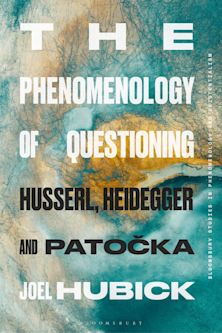- Home
- ACADEMIC
- Philosophy
- History of Philosophy
- The Pseudo-Science of B. F. Skinner
The Pseudo-Science of B. F. Skinner
This product is usually dispatched within 3 days
- Delivery and returns info
-
Free US delivery on orders $35 or over
You must sign in to add this item to your wishlist. Please sign in or create an account
Description
The Pseudo-Science of B.F. Skinner was Professor Tibor Machan's first book. Now, nearly forty years after its initial publication and after three dozen additional books published by Machan, it is available again through University Press of America. This study is still alive with its initial inquiry into the work of B.F. Skinner, and it is just as influential upon young students today as it was forty years ago.
Was Skinner a bona fide scientist or an amateur metaphysician? Was Skinner correct to hold that only what can be observed matters when it comes to understanding ourselves? Was he correct that free will is fictional and morality is pre-scientific? Professor Machan's fascinating inquiry into Skinner's radical studies is a salute and a challenge to the corpus of his work.
Table of Contents
Part 2 Part I
Chapter 3 Skinner vs. Freedom, Dignity, and Liberty
Chapter 4 Is Skinnerism Science?
Part 5 Simple and Complex Reductionism
Chapter 6 The Values, Goals, and Wishes of B.F. Skinner
Part 7 Part II
Chapter 8 Science, Philosophy, and the Division of Labors
Chapter 9 Man, Science, and Freedom of Choice
Chapter 10 In Defense of Political Liberty
Chapter 11 Dignity-Its Best Chance in Freedom
Part 12 Endnotes
Part 13 Bibliography
Part 14 Index
Product details
| Published | Dec 20 2006 |
|---|---|
| Format | Paperback |
| Edition | 1st |
| Extent | 226 |
| ISBN | 9780761836544 |
| Imprint | University Press of America |
| Dimensions | 9 x 6 inches |
| Publisher | Bloomsbury Publishing |
About the contributors
Reviews
-
Anyone who has interests within the behavioral and social sciences...should read this book. The issues raised by Machan [in 1973] remain pertinent today...
Robert W. Proctor and Daniel J. Weeks, The American Journal Of Psychology



































